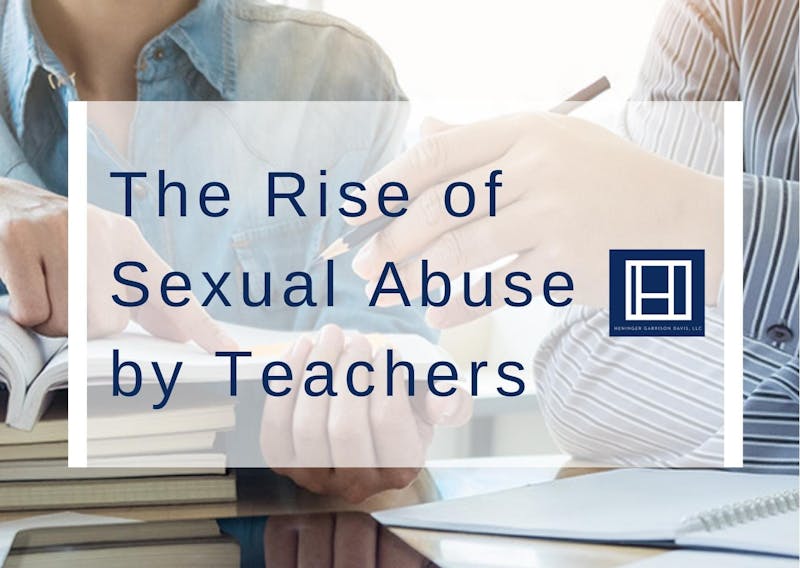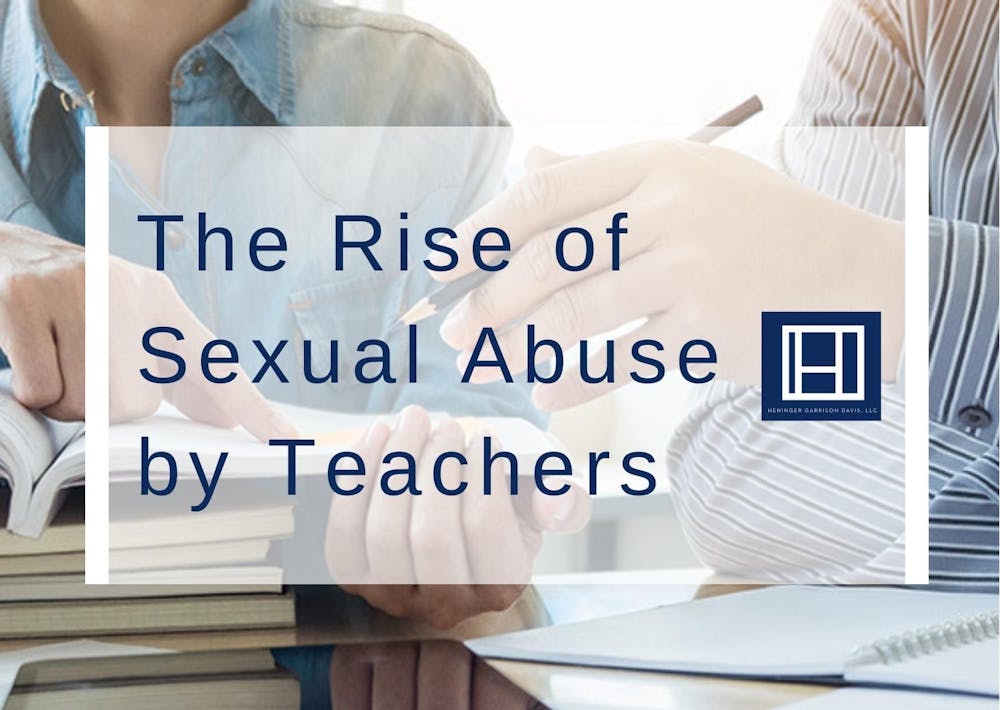

Erik Heninger and Brandy Robertson secured a $1.5 million judgment against a cheerleading coach and gym for sexual assault and invasion of privacy of two women. Along with other acts, the coach was secretly recording the cheerleaders – minors at the time – in various states of undress in the gym, the gym’s bathrooms, and while on a trip to a cheer competition. Erik and Brandy are proud to have represented these two brave young women seeking to hold the coach and gym accountable for these despicable actions.
Get more information from the video below:
From schoolchildren to mature University scholars, all students place their trust in teachers. Educators subsequently hold a position of power, irrespective of the student’s age. Sadly, both statistical data and anecdotal admissions show that an increasing number of teachers have abused that power in recent years.
Aside from the case handled by Erik Heninger and Brandy Robertson, a number of high-profile cases have made state and national media in recent times. Teachers, tutors, and coaches have all been guilty. Furthermore, a 2014 study showed that 361 cases of school employee sexual misconduct were registered. According to Stop Educator Sexual Abuse Misconduct & Exploitation (SESAME), just under 500 arrests were made in 2015.
While figures in 2020 and 2021 are likely to fall compared to recent years, this is largely due to the pandemic. The grim reality is that nearly 7% of students in grades 8-11 are subjected to sexual misconduct while a 2010 Government Accountability Study found that offenders can take up to 73 victims.
Sexual abuse and misconduct doesn’t stop at K12 levels either. Sexual misconduct is also a problem between educators and college students, which has resulted in many Universities and institutions across the nation banning teacher-student relationships as a moral consideration. Even when students are of consenting age, it is considered an abuse of power and unethical behavior – especially in situations where teachers knew the student before they reached legal age.
Sexual assault can take many forms from rape and unconsenting actions to consenting relations in which it has been regularly argued that mutual consent is not possible due to the power dynamic between students and teachers – regardless of age.
While most people would naturally think that the most harmful forms of sexual misconduct are when a minor is involved, it can be equally serious when the victim is of legal age too. All forms of sexual harassment are covered under Title IX of the Sexual Harassment Guidance 1997 as a form of discrimination while many of the illegal actions are met with severe punishments including jail time.
Schedule a Free Legal Consultation Contact Us
Why are Cases More Common in the Modern Day?
As the studies by ICMEC and SESAME show, there are many reasons for the spike in sexual assault cases from teachers. Some of those issues are specifically linked to the education sector while others are more generic.
Some of the most telling reasons include, but are not necessarily limited to;
- Awareness – firstly, for several years, many victims were unaware of the situation or felt unable to speak out. An increase in awareness of sexual assault and discrimination through political movements like #metoo has given victims a voice. Furthermore experts – like HGD Law – provide hope when fighting for justice.
- Technology – over half of all assaults and misconducts at the K12 level take place outside of school environments, and the figures can be even higher for learning environments with adult students. Approximately 3 out of 4 offenders uses technology to contact and harass their victims.
- Mindsets – teenagers are exposed to graphic content thanks to the internet while roughly one-in-four has participated in sexting (with anyone, including other teenagers). This can make them more vulnerable to falling victim to an abuse of power from teachers.
While it should be remembered that almost all teachers have genuine intentions, those with bad ones can commit their crimes with greater ease than ever. When added to the fact institutes are more transparent and committed to their duty of care, it’s no wonder that the figures have increased.
How Should Victims Respond?
First and foremost, all victims of sexual assualt (from teachers or anybody) should know that it is never their fault. Offenders are often good at manipulating victims but you must avoid this situation.
If reporting the crime against yourself, it’s important to gather as much evidence as possible. You can then seek legal advice and speak to law enforcement teams if required.
For parents who suspect that their child has been victimized, it’s important to take the right approach. Common signs of a problem include mood swings, viewing their body as dirty, and not wanting to be touched even by people they trust. When speaking to a child, you must;
- Remain calm, patient, and never force them to speak,
- Listen to what they have to say and be reassuring without downplaying it,
- Remember that it’s very unlikely to be a false accusation,
- Ask if they have spoken to friends about the situation.
The results will determine your next steps. It may include getting medical help, mental health support, and other assistance for your child. Putting the student in a new learning environment will probably help too, even if the offender is likely to be sacked.
Our specialists can help your family through the legal procedures ahead. Crucially, we’ll also point you towards RAINN and other relevant helplines.
If you or a loved one has been involved in a situation involving sexual abuse, assault, or misconduct, don’t hesitate to contact Heninger Garrison Davis to understand your rights.

